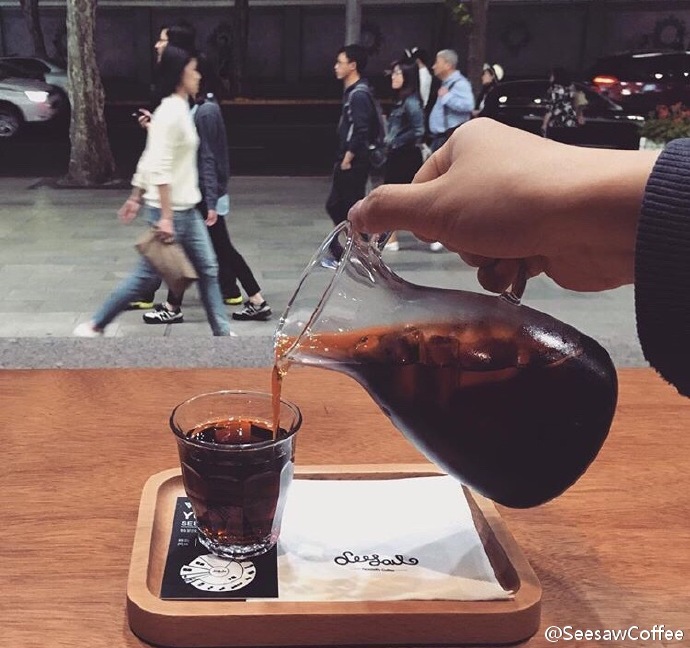Sigri, the bird of paradise in PNG
Papua New Guinea is one of the least urbanized countries in the world, with only 18 per cent of its urban population and 85 per cent of its national economy derived from agricultural exports. But Papua New Guinea produces one of the best quality coffee in the world. The local coffee variety comes from the Blue Mountain Coffee in Jamaica and belongs to Typica.

Papua New Guinea is located on the island of Guinea, bordering Indonesia and Australia to the south.
In Papua New Guinea, about 75 per cent of coffee products come from small local farms. Many farms reclaim land in the forest, and some are in the depths of the forest, almost isolated from the rest of the world. Coffee in the country is grown on highlands between 1300 and 1800 meters above sea level, so it is of high quality. Although coffee is also grown in some lowlands, the yield is relatively small. Most of the locally grown coffee is grown under natural conditions because of the problems and high costs of transporting chemical fertilizers and pesticides to the farm.
Although Papua New Guinea is close to Indonesia, the coffee taste is completely not used in Indonesia's Mantenin, Papua New Guinea beans, taste clean, full of flowers and rhyme, completely different from Mantenin's miscellaneous flavor and strong flavor.
The two most popular beans from Papua New Guinea in China are sigri and purosa. Many people are accustomed to calling sigri a bird of paradise, while prosa is Prosa. In fact, these are two kinds of beans from two manors (estate). As for the term "bird of paradise", it is still a bit inappropriate, because in fact, the bird of paradise is the national bird of Papua New Guinea, and there is a "bird of paradise" on its national flag, and sigri's raw bean sack is also printed with a bird of paradise, so it is easy to call this bean "bird of paradise" in China.
As for purosa, which entered the eyes of Chinese people after sigri, there is actually a "bird of paradise" on the sack, but because the word "bird of paradise" already has an owner, purosa is called "Prosa."
Papua New Guinea is an island country in Oceania. In Malay, "Papua" means "curly hair". It is said that in 1545, the explorer Retes arrived on the island and found that most of the people's hair on the island was curly, that is, the island was called "the island of curly hair", so the name was handed down.
Located in tropical Papua New Guinea, the climate is humid and rainy, rich in coconuts and coffee. Forests and mineral resources are also rich. Rabur is the sixth largest town in the South Pacific island nation and an important shipping hub. Its rich coffee and other goods are exported from this port.
Papua New Guinea is an island country in the South Pacific, with the second largest population and land area in the South Pacific after Australia. Pakistan not only retains nearly a thousand years of native language and traditional customs, its natural environment is also one of the least developed countries in the world. In 1927, a group of Arabica coffee seedlings from the Blue Mountains of Jamaica drifted across the ocean to Pakistan, opening the coffee history of Papua New Guinea.
Papua New Guinea has a detached and primitive natural environment and its land is vast and fertile. Its unique volcanic rock soil and abundant rainfall create excellent natural conditions for the growth of coffee. The top coffee beans in Papua New Guinea are as beautiful and precious as the country's national bird of paradise. As coffee in the country is widely grown in the highlands of 1300 to 1800 meters above sea level, coffee beans are plump and varied in taste, with pleasant acidity and fruit-like sweetness.
Sigri Estate was one of the first coffee farms to emerge when coffee cultivation in Papua New Guinea began to be commercialized in 1950. Siguri Manor is located in the western highlands of the Waghi Valley, with an elevation of 1600 meters, rich precipitation and fertile soil to ensure the high quality of its raw coffee beans. Although the requirements for boutique coffee were very strict at that time, the newly established Siguri Manor was quickly recognized by the world for its high quality.
In order to ensure high quality, Siguri Manor has very strict requirements for raw beans. The bright red and ripe fruits were picked by hand, peeled and fleshed on the same day, and then washed with live water to remove the final mucous membrane. Unlike his estate in Papua New Guinea, Siguri's carefully selected raw beans are washed for 24 hours and fermented for three days, then soaked to ensure their cleanliness, and finally sun-dried and hand-graded.
With the continuous improvement of Sigri's reputation, he finally became one of the best coffee in the world more than 20 years ago, and became a popular boutique coffee for coffee lovers.
Papua New Guinea is one of the least urbanized countries in the world, with only 18 per cent of its urban population and 85 per cent of its national economy derived from agricultural exports. But Papua New Guinea produces one of the best quality coffee in the world. The local coffee variety comes from the Blue Mountain Coffee in Jamaica and belongs to Typica.
Papua New Guinea is located on the island of Guinea, bordering Indonesia and Australia to the south. Although Papua New Guinea is close to Indonesia, the coffee taste is completely different from Indonesia's Mantenin, Papua New Guinea beans, taste clean, full of flowers and rhyme, completely different from Mantenin's miscellaneous flavor and strong flavor.
Papua New Guinea is located on the island of Guinea, bordering Indonesia and Australia to the south. Although Papua New Guinea is close to Indonesia, the coffee taste is completely different from Indonesia's Mantenin, Papua New Guinea beans, taste clean, full of flowers and rhyme, completely different from Mantenin's miscellaneous flavor and strong flavor.
It has the same mellow and full-bodied taste as Man beans, but the difference is that coffee tastes much cleaner and sweeter than Man beans, which is different from the taste of Man syrup and more similar to the taste of American beans, cocoa and chocolate.
Because the national bird of Papua New Guinea is the bird of paradise, so many domestic coffee gluttons call it the bird of paradise, and Sigri is just one of many "birds of paradise" (sigri is a farm name), and AA is the grade of beans, according to the size of beans, AA is the most neat big beans, basically 17-18 eyes.
In coffee tasting terms, a generally accepted evaluation of Papua Guinean coffee is delicate, which means complex in Chinese. This is a commendatory comment. It is difficult to describe the taste of bird of paradise with a certain taste word. You can close your eyes and think of the taste feast brought to you by the bird of paradise.
If you taste Papua New Guinea coffee beans with Guatemala Antigua coffee, it will have a different taste. As we all know, Papua New Guinea coffee has the characteristics of fruit flavor and herbal aroma, while Guatemala Antigua coffee has a slightly spicy and cocoa flavor. The tip of the tongue has both fragrant fruit flavor and cocoa flavor, the two flavors blend and collide, giving people a unique new coffee experience.
Important Notice :
前街咖啡 FrontStreet Coffee has moved to new addredd:
FrontStreet Coffee Address: 315,Donghua East Road,GuangZhou
Tel:020 38364473
- Prev

Apple iCup Concept Coffee Mug Lighting Line Heating Coffee
The Apple iCup is an interesting coffee cup idea that connects the cup to a computer or power supply via USB and Lighting cables to provide electrical heating for beverages such as coffee in the cup. Apple iCup coffee cup designer Tomislav Zvonari? The Apple iCup is an interesting coffee cup idea that uses USB and Light
- Next

The practice of American coffee in today's coffee market
Some friends have questions about the practice of American coffee. Dilute a cup of Espresso with water. Is it American coffee? Uncle Dou's answer: it is indeed so. Let's first take a look at how American coffee appears and is named. American coffee was born after World War II, when the Americans ended the war in Europe, many troops came to southern Europe, they could not drink Espresso, so
Related
- Can I make coffee a second time in an Italian hand-brewed mocha pot? Why can't coffee be brewed several times like tea leaves?
- Hand-brewed coffee flows with a knife and a tornado. How to brew it? What is the proportion of grinding water and water temperature divided into?
- What is the difference between Indonesian Sumatra Mantinin coffee and gold Mantinin? How to distinguish between real and fake golden Mantelin coffee?
- What does bypass mean in coffee? Why can hand-brewed coffee and water make it better?
- Unexpected! Ruixing Telunsu lattes use a smoothie machine to foam milk?!
- % Arabia's first store in Henan opens into the village?! Netizen: Thought it was P's
- Does an authentic standard mocha coffee recipe use chocolate sauce or powder? Mocha Latte/Dirty Coffee/Salty Mocha Coffee Recipe Share!
- What is the difference between Vietnam egg coffee and Norway egg coffee? Hand-brewed single product coffee filter paper filter cloth filter flat solution!
- What is the difference between sun-cured and honey-treated coffee? What are the differences in the flavor characteristics of sun-honey coffee?
- How to make Italian latte! How much milk does a standard latte use/what should the ratio of coffee to milk be?

